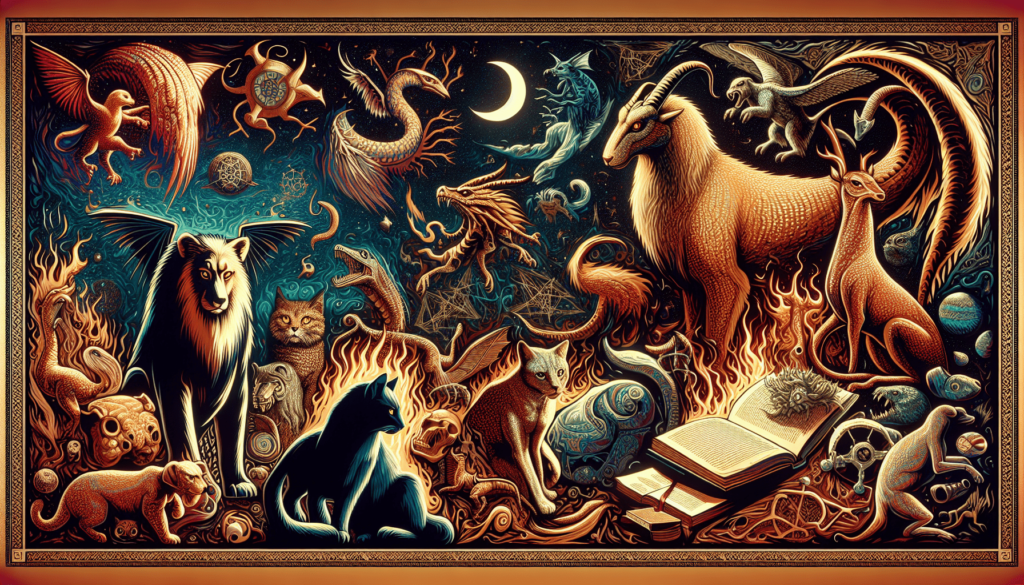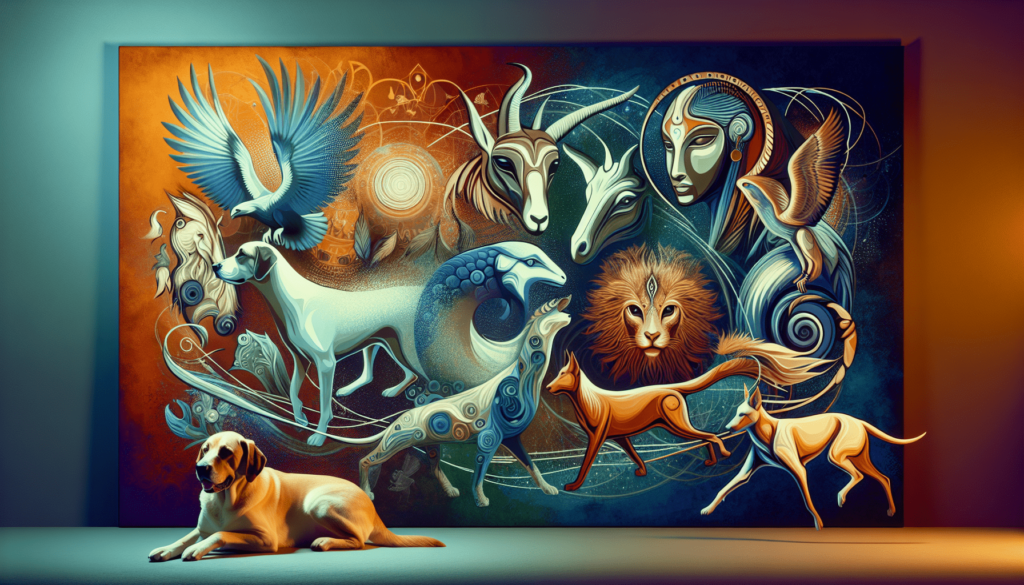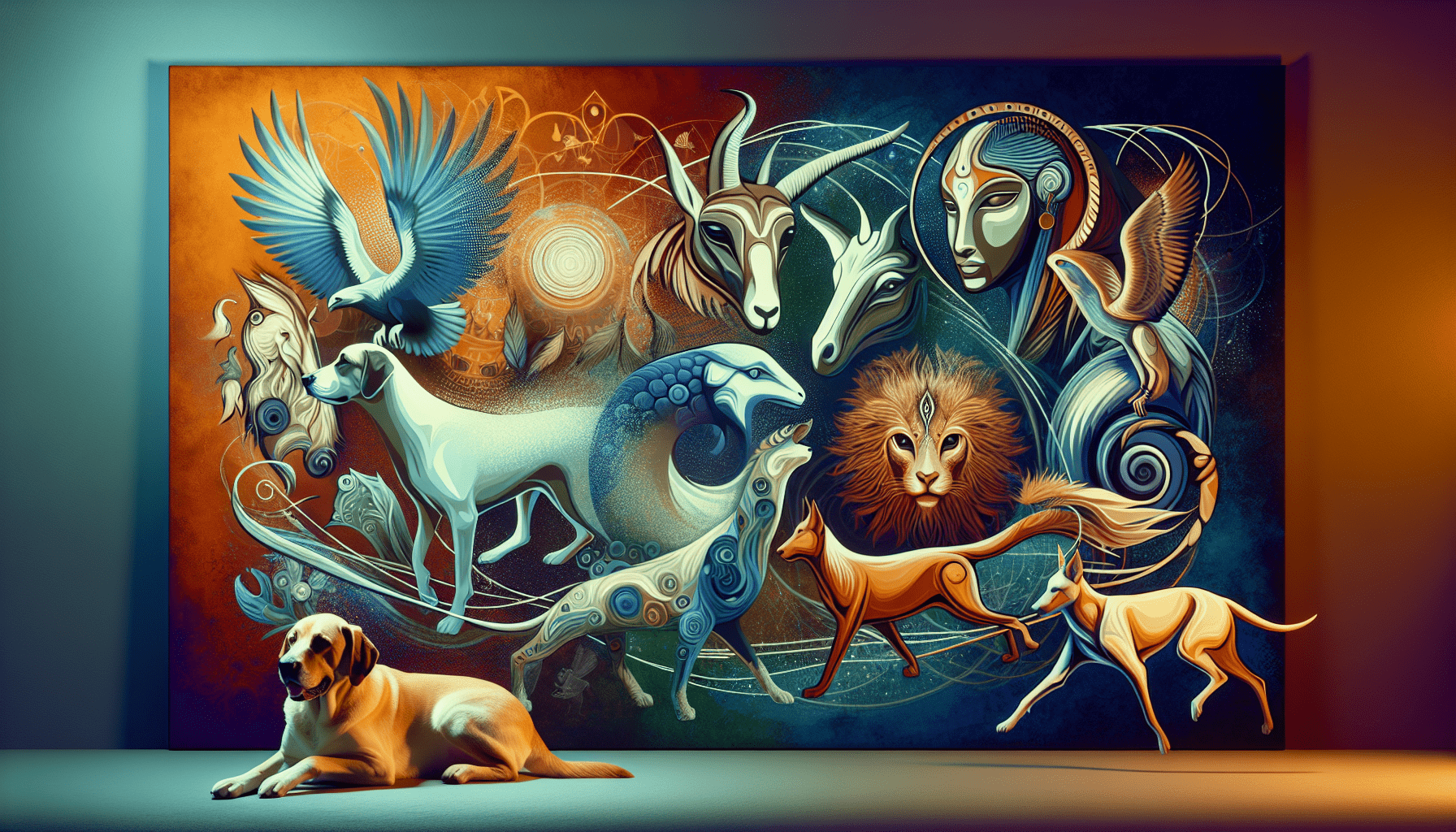
Have you ever wondered about the role of pets in ancient myths and legends?
Pets have always held a special place in the hearts of humans, offering companionship, love, and sometimes even mystical powers. Explore the fascinating world of pets in mythology and discover how they have played a significant role in shaping cultures throughout history.
Ancient Egypt: Cats as Sacred Beings
In ancient Egypt, cats were considered sacred beings, revered for their grace and elegance. Not only were they prized for their ability to keep homes free of vermin, but they were also believed to possess supernatural powers. The goddess Bastet, often depicted with the head of a lion or a domestic cat, was the protector of home, family, and women. Cats in Egyptian mythology were considered protectors of the home and were often mummified and buried with their owners to ensure safe passage to the afterlife.
Norse Mythology: Wolves as Divine Companions
In Norse mythology, wolves held a special place as divine companions to the gods. The most famous of these wolves was Fenrir, the monstrous wolf foretold to bring about the end of the world during Ragnarok. However, not all wolves in Norse mythology were feared; some, such as Geri and Freki, were the loyal companions of the god Odin. Wolves were often associated with strength, loyalty, and cunning in Norse mythology, reflecting the values of the ancient Norse people.
Let’s take a closer look at the role of pets in different mythologies around the world.
From the loyal hound of the underworld in Greek mythology to the magical dragons of Chinese folklore, pets have played a crucial role in shaping the beliefs and values of cultures worldwide. Explore the diverse roles that pets have played in mythology and how they continue to influence our understanding of the world today.
Greek Mythology: Cerberus and the Hound of Hades
In Greek mythology, Cerberus was the fearsome three-headed hound that guarded the gates of the underworld, preventing the dead from escaping. Despite his fierce appearance, Cerberus was also a loyal companion to Hades, the god of the underworld. In some versions of the myth, Cerberus was said to have been tamed by the hero Hercules as part of his Twelve Labors. Cerberus symbolized the boundary between the living and the dead, serving as a reminder of mortality and the afterlife.
Chinese Mythology: Dragons as Divine Creatures
In Chinese mythology, dragons are revered as divine creatures associated with power, strength, and good fortune. Unlike the fire-breathing dragons of Western folklore, Chinese dragons were often depicted as benevolent beings that brought rain and prosperity to the land. The Chinese dragon was believed to be a symbol of imperial power and were often associated with the emperor. Dragons were also considered protectors of the spiritual realm, capable of warding off evil spirits and bringing blessings to those who worshipped them.

Now, let’s delve into the symbolic meaning of pets in mythology.
Pets in mythology often serve as symbols of deeper philosophical and spiritual concepts, reflecting the values and beliefs of the cultures that created them. Discover the symbolic meanings behind some of the most iconic pets in mythology and how they continue to inspire awe and wonder in the modern world.
Celtic Mythology: The White Stag as a Symbol of Otherworldly Knowledge
In Celtic mythology, the White Stag was a mythical creature often associated with the Otherworld and supernatural knowledge. The White Stag was said to possess the ability to guide seekers on spiritual journeys, leading them to hidden truths and revelations. In Celtic folklore, encountering the White Stag was a rare and auspicious event, believed to bring good luck and blessings. The White Stag symbolizes the pursuit of higher truths and the quest for spiritual enlightenment in Celtic culture.
Japanese Mythology: Kitsune as Trickster Spirits
In Japanese mythology, the kitsune is a legendary fox spirit known for its shape-shifting abilities and mischievous nature. Kitsune were believed to possess magical powers and were capable of assuming human form or appearing as ordinary foxes. In Japanese folklore, kitsune were often depicted as cunning tricksters who played pranks on unsuspecting humans or tested their virtue. Despite their playful antics, kitsune were also revered as protectors of the home and family, bringing good luck and prosperity to those who honored them.
Conclusion
Pets have long been an integral part of human culture, serving as companions, protectors, and symbols of deeper truths in mythology. By exploring the diverse roles that pets have played in different mythologies around the world, we gain a deeper understanding of the values and beliefs that have shaped societies throughout history. From the graceful cats of ancient Egypt to the powerful wolves of Norse mythology, pets continue to inspire awe and wonder, connecting us to the mysteries of the past and the beauty of the natural world. So the next time you cuddle up with your furry friend, remember the ancient bonds that link us to the timeless stories of pets in mythology.

